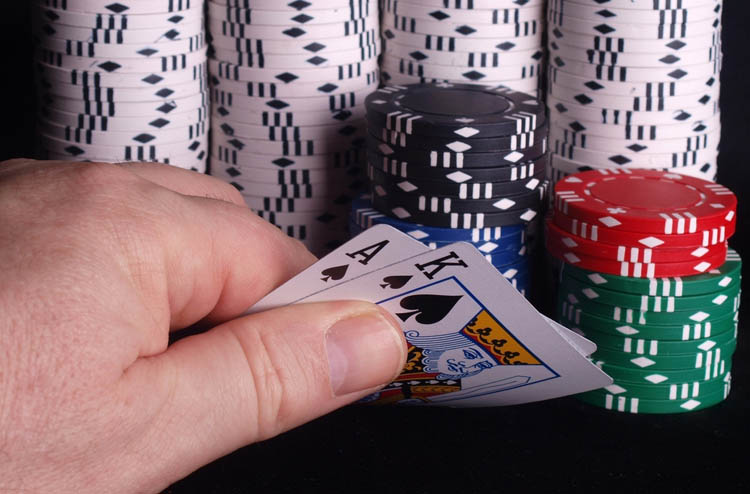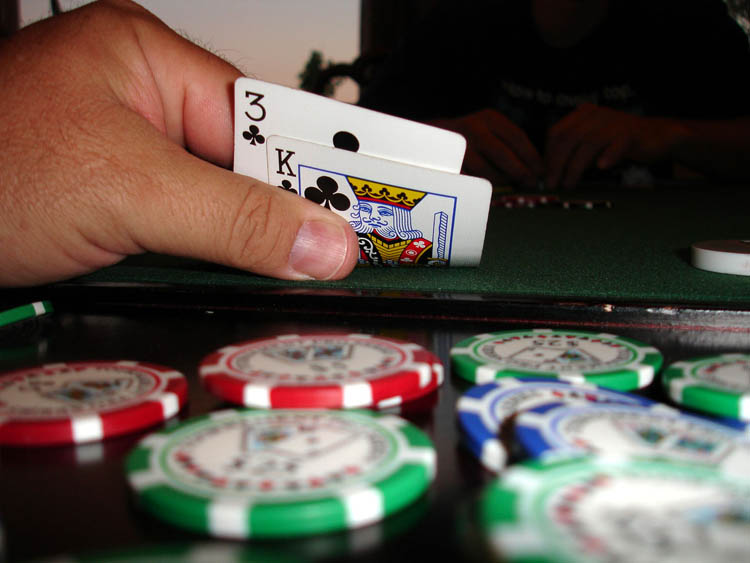One of the first things you’ll need to do when taking up poker is to figure out whether you want to focus on cash games or tournaments. Although most players dabble with both of these, they’re usually focused on one or the other, and for good reason!
While you’ll be playing the same game, cash games and tournaments require very different skill sets if you want to be successful. You can pick one or the other and you can make money in both but a good tournament player doesn’t necessarily have to be a good cash game player and vice versa.
How do you make a decision, then? Are you better off sticking to cash games action or should you venture into the exciting world of tournament poker?
The answer depends on many factors but this article should help you gain a much deeper understanding of pros and cons to both formats. The ultimate decision will still be yours but you’ll have much more concrete information to work with and base that decision on.
Table Of Contents
Tournaments vs. Cash Games from the Profit Perspective
One of the biggest things most people are concerned about is the amount of money they can expect to make playing poker. This makes sense if you’re looking to take up the game in a serious capacity as you’ll be investing a lot of your time and money into it so you want to see some kind of return.
The question is, will you be making more money from tournaments or cash games?
There isn’t a very clear-cut answer to this question (surprise!), as it depends on your own skill level, the average skill level of your competition, and the kind of volume you’re willing, ready, and able to put in.
When compared to tournaments, cash games are much less volatile. Provided you’re playing in a game you can beat, you can expect to turn a pretty consistent profit on a monthly basis. The exact number can fluctuate but as long as you put in the hours (20 – 30 hours per month) and have a relatively good winrate, your results should be pretty consistent.
Tournaments are a much different beast.
You can be a very good tournament player and still go a full year or more without making any money. While this isn’t a super-common scenario, it’s been known to happen and it will happen to you at some point if you decide to play poker tournaments exclusively.
Single Big Scores vs. Many Small Ones
The bulk of your profit from the tournaments will come from a handful of events where you manage to finish in the top three spots. The rest of your results will help keep your bankroll healthy but you’ll only get into black when you manage to book one or two wins. One win can bring you 100, 200, or even 1,000+ buy-ins.
With cash games, you’re not going to have such huge wins. Winning a few buy-ins in a session is a very good result and being up 10 or more buy-ins is considered a huge session. However, you’re going to have many more profitable sessions overall.
So, to sum it up, both formats can be very profitable but you’ll realize your profits in a different way. If you prefer more of a steady and safe approach, go for cash games. If the idea of winning huge in one clean swoop feels more attractive, go for tournaments – but beware of the variance.
Are Cash Games Harder to Play Than Tournaments?
Poker is a game of skill and if you expect to win in the long run, you’ll need to apply yourself to studying and getting better. You can have a fairly long streak of good fortune but things tend to even out on the felt so if you want to make the game your career or even a profitable hobby, you’ll need to put in some effort.
If you accept this fact, the next logical question is: is it easier to become really good at tournaments or cash games?
While you’ll find different answers to this question, I’d say that cash games are harder to learn for a couple of reasons:
- You’re almost always playing deep stacked
- Because of this, your mistakes have more severe implications
Since No Limit Hold’em is a game of almost unlimited options, making the right decisions becomes increasingly harder as your stack grows.
If you have only 10 big blinds in your stack and the button shoves, you have a super easy call holding AQ. But how do you play the same hand when you’re sitting 250 big blinds deep?
This isn’t to say that tournaments aren’t extremely skill-oriented. One of the biggest challenges of tournament poker is that blinds constantly increase. To become a truly good player, you need to learn to shift gears and adapt to new situations.
Also, while a wrong decision in a tournament might be “less wrong” in terms of chips and big blinds, it can have huge implications. Once you’re eliminated, you’re done. You can’t just take more money out of your pocket and keep playing.
Cash games are probably more complicated from a purely technical point of view as there is more math involved. Tournaments require the ability to constantly switch gears and will really put your mental resolve to the test. Busting out on the final table bubble to a cooler or because of a mistake can be a very painful experience that will take some time to recover from.
Are You More of a Free Spirit? Play Cash Games!
One of the main reasons why people take up poker as a career (besides the money, of course) is the freedom that comes with the choice. You’ll be your own boss and have the ability to set your own hours.
Well, if you opt to be a tournament player, you’ll soon come to realize things aren’t as good as you expected them to be.
The thing with poker tournaments is that they run according to fixed schedules. They’ll start at a certain time and will often tie you up for hours. Of course, you’re still free to get up and leave whenever you like but you can’t cash out your tournament chips. So, you have to stay there to the bitter end.
And let’s not even talk about major tournament series, online or live.
Every serious tournament player knows that big events like WSOP, WCOOP, Micro Millions, or EPT are must-play. You can’t afford to skip on series such as this (depending on your usual buy-ins, of course). So, you’ll often be very busy and limited for several weeks, playing pretty much every day.
If freedom is your main focus, tournaments might not be for you. You might not have a boss as such but every online and live venue will be your boss to some extent. They’ll dictate your working schedule and you’ll pretty much have to stick to it if you want to make money.
You Can Pick Your Own Hours with Cash Games
Unlike tournaments, cash games are much more flexible. You can join the action whenever you feel like it and get up at any point. The money you have in front of you is actual cash and you can walk away with it, no questions asked.
Of course, you’ll still be limited in some ways as there isn’t much action happening at eight in the morning but in this day and age, you can even find a workaround for that.
Online poker is played by people from all over the world so if you’d rather play during your morning hours, you just need to find a room that caters to the part of the world where your mornings are afternoons and evenings. For more information, check out my post on the best poker rooms for beginners.
While you’ll still need to put in decent hours to make money, you have much more freedom in terms of how you schedule those hours. You can play very long sessions for a few days a week and take a couple of days off completely. Or, you can break down your daily routine into several shorter sessions so you’re never too tied up.
Cash games are definitely the better option for those who appreciate their freedom above everything else. Whether you’re up or down on a session, you can stop at any time and get back to it when you feel like it.
The Level of Competition: Tournaments Are Still Soft
We’ve already talked about tournaments being somewhat easier to learn from the strategic point of view. However, what’s even more important is that you’ll find many weaker players in tournaments, especially online and especially in low to mid-stakes events.
While live cash games are still pretty good, online competition has become very tough. If you want to be a winner at any reasonable stakes, you’ll really need to study a lot and constantly improve your play.
Tournaments, on the other hand, continue to attract many bad players. Simply put, this is one of the main reasons I think investing in poker tournament courses and training sites is one of the best ways to get a good ROI these days.
There is a fairly simple explanation for this and it goes back to the nature of tournaments. In theory, you don’t have to be very good to win a single tournament. You could get lucky and win a tournament with a few thousand players, turning your small buy-in of $10 or $20 into tens of thousands.
Something like this simply can’t happen in a cash game no matter how good you happen to run.
So, if you can deal with the inevitable variance, tournaments are much easier to beat in the long run. As long as you have solid strategic fundamentals and don’t make any big mistakes, you should be making decent money in the long run.
An ROI (Return on Investment) of 30% – 40% is definitely achievable in online poker tournaments but you will need to play a few thousand of them to get to this number. Of course, you can still get lucky early on and win a big event right off the bat, taking a lot of pressure off your shoulders.
Some of the plays you’ll see in online tournaments are, quite frankly, ridiculous, and you’ll never see moves like that in cash games. Players will often just dust off their stack on a completely insane bluff or will call you down with nothing for loads of chips.
If you’re wondering why, go back to some of the previous points. Tournaments take a lot of time to finish and not all people who enter a tournament plan so far ahead. Sometimes, they just have to go and they don’t want to leave their stack to be blinded out. So, they’ll try to “brute force” their way to the victory (which never works, of course), donating their chips in the process.
You’ll Need Bigger Bankroll for Tournaments
While tournaments are softer in general, you’ll still need a bigger bankroll to get started due to the variance. For cash games, you can start with 40 buy-ins for your selected level. For tournaments, you should have at least 80 and preferably 100 average buy-ins to really feel safe.
For example, to play NL100 cash games, you’ll be fine with $4,000 to $5,000. If you wanted to play in $100 tournaments, you should probably have at least $10,000 set aside just for poker and to ensure you don't go broke.
As mentioned earlier, the short-term effect of luck in poker tournaments can be quite significant and you can go on long stretches without any significant results. The last thing you want is to run out of money in the middle of a downswing.
For a poker player, their bankroll is their main operational tool. If you run out of money, you’re pretty much done. So, keep this in mind as well when making your decision about what format to play and plan accordingly.
Summary: Cash Games or Tournaments?
Like I said at the very start, this article won’t try to push you in either direction. Whether you want to focus on poker cash games or tournaments is entirely your choice. Both options have their pros and cons and both can work out very well if you approach them correctly.
Hopefully, you’ll find some of the tips in here useful in the process. You’re the best judge of your own character and you also know best what your bankroll looks like. Keep these things in mind when making the decision.
Finally, if you are still unsure, you can give both formats a try for a little while and see how you like them. There is no substitute for the firsthand experience and you shouldn’t be afraid to experiment and test things. You’re bound to stumble upon your sweet spot eventually and then you can give it your full focus!







